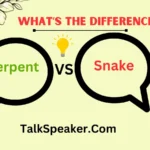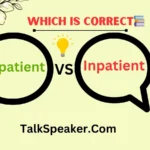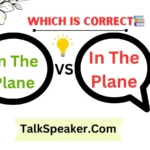Understanding the nuances between phrases like “early this morning” and “earlier this morning” can significantly improve your communication. These seemingly simple expressions carry different meanings and implications that can alter the message you’re trying to convey.
In this blog post, we’ll dive deep into the distinctions between these phrases, their usage, and their impact on communication.
Time-related expressions are a fundamental part of our daily conversations. They help us specify when events occur, creating a clear timeline. However, subtle differences in phrasing can lead to different interpretations.
Knowing when to use “early this morning” versus “earlier this morning” can enhance your clarity and precision in communication.
Defining the Phrase “Early This Morning”
“Early this morning” typically refers to the time shortly after midnight and before most people start their day. This period is generally understood to be from around 12:00 AM to 6:00 AM. It conveys the idea of an event happening at an unusually early hour.
Examples:
- “I went for a jog early this morning.”
- “The delivery arrived early this morning.”
Exploring the Absolute Nature of “Early”
The term “early” has a more fixed and absolute nature compared to “earlier.” It signifies a specific period within the morning, generally understood to be before the usual waking hours.
Typical Contexts:
- Early morning exercise routines.
- Deliveries and work shifts that start before sunrise.
- Natural phenomena, like sunrise or morning bird songs.
Fact:
- Morning Bird Activity: Most birds are active early in the morning. This period is known as the “dawn chorus.”
Typical Contexts for Using “Early This Morning”
“Early this morning” is used in various contexts to highlight the unusual timing of an event. It’s often associated with actions or occurrences that happen before the typical morning routine begins.
Common Scenarios:
- Work and Commute: “I left for work early this morning to avoid traffic.”
- Health and Fitness: “She finished her yoga session early this morning.”
List:
- Early morning workouts.
- Pre-dawn travel.
- Early morning meetings.
Varied Interpretations of “Early” Across Different Regions
The interpretation of “early” can vary significantly across different cultures and regions. What is considered early in one place might not be seen the same way elsewhere.
Regional Examples:
- Spain: Early might mean around 8:00 AM, as people tend to have later routines.
- United States: Early is often considered anytime before 6:00 AM.
Table: Regional Interpretations of “Early”
RegionTypical “Early” TimeUnited StatesBefore 6:00 AMSpainBefore 8:00 AMJapanBefore 5:00 AMIndiaBefore 6:00 AM
The Comparative Aspect of “Earlier This Morning”
“Earlier this morning” is a relative term that compares the time of an event to another point in the morning. It doesn’t specify an exact time but indicates that something happened before another event.
Understanding “Earlier”:
- It is relative, meaning it always implies a comparison.
- It can refer to any time before the present moment in the morning.
Examples:
- “I had breakfast earlier this morning before the meeting.”
- “She called me earlier this morning to confirm the appointment.”
Navigating the Nuances: When to Use Each Phrase
Choosing between “early this morning” and “earlier this morning” depends on the context and what you want to emphasize.
Guidelines:
- Use “early this morning” to highlight the unusual timing of an event.
- Use “earlier this morning” to compare the timing of one event to another.
Example Scenario:
- Early This Morning: “I completed the report early this morning.”
- Earlier This Morning: “I completed the report earlier this morning than usual.”
Examples of “Early This Morning” in Daily Communication
Using “early this morning” in conversations often emphasizes the early hour at which something occurred.
Dialogue Examples:
- Workplace: “I finished the project early this morning before anyone else arrived.”
- Home: “We cleaned the house early this morning.”
List:
- Early morning exercise routines.
- Pre-dawn activities.
- Early morning work shifts.
The Role of Context in Choosing Between “Early” and “Earlier”
Context plays a crucial role in deciding whether to use “early this morning” or “earlier this morning.” The surrounding details can influence which phrase conveys your message more accurately.
Examples:
- Contextual Use: “The package arrived early this morning” versus “The package arrived earlier this morning than expected.”
Table: Contextual Usage Examples
ContextEarly This MorningEarlier This MorningDeliveryThe package arrived early this morning.The package arrived earlier this morning than expected.MeetingsThe meeting was scheduled early this morning.The meeting was held earlier this morning than usual.Personal RoutineShe woke up early this morning.She woke up earlier this morning than her usual time.
Breaking Down “Earlier This Morning” in Conversations
“Earlier this morning” is often used to compare an event with another point in time. It helps provide a relative timeframe without specifying an exact moment.
Examples in Conversations:
- Office: “We discussed the new project earlier this morning.”
- Home: “I finished my chores earlier this morning.”
List:
- Comparison of tasks.
- Reference to previous events.
- Highlighting relative timing.
Does “Earlier” Imply Comparison with Others or Usual Timings?
“Earlier” often implies a comparison, either with another person’s schedule or usual timings. It can indicate a deviation from the norm.
Examples:
- Usual Timings: “I woke up earlier this morning than usual.”
- Comparison with Others: “He arrived earlier this morning than his colleagues.”
Case Study:
- Case: John typically wakes up at 7:00 AM, but today he woke up at 6:00 AM.
- Statement: “John woke up earlier this morning.”
- Implication: The statement implies a comparison to his usual wake-up time.
Cultural Perceptions of Time and Its Impact on Language Use
Cultural perceptions of time significantly influence how we use and understand phrases like “early this morning” and “earlier this morning.”
Examples:
- Punctuality: In cultures where punctuality is highly valued, “early” might imply a stricter adherence to specific times.
- Flexible Time: In more relaxed cultures, “early” could have a broader interpretation.
Quote:
- Japanese Proverb: “The early bird catches the worm.” This highlights the cultural value placed on being early.
Summary: Clarifying “Early” vs. “Earlier” to Improve Your Morning Narratives
Understanding the difference between “early this morning” and “earlier this morning” can improve your clarity in communication. Use “early this morning” to emphasize the unusual timing of an event and “earlier this morning” to make relative comparisons.
Practical Tips:
- Be mindful of context and cultural perceptions.
- Choose the phrase that best fits the timing and comparative aspects of your message.
- Practice using these phrases in different scenarios to enhance your communication skills.
Conclusion
Time-related expressions like “early this morning” and “earlier this morning” play a crucial role in our daily conversations. By understanding their nuances and proper usage, you can communicate more effectively and clearly. Remember, context and cultural differences significantly impact how these phrases are perceived, so always consider your audience when choosing your words.
Incorporate these insights into your daily communication to convey your messages with precision and clarity. Whether you’re scheduling a meeting, describing an event, or narrating your morning activities, the right choice of words can make all the difference.

Amelia Harris, a passionate educator, simplifies English grammar and vocabulary for learners of all levels. With her engaging style, mastering English has never been easie




